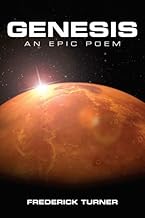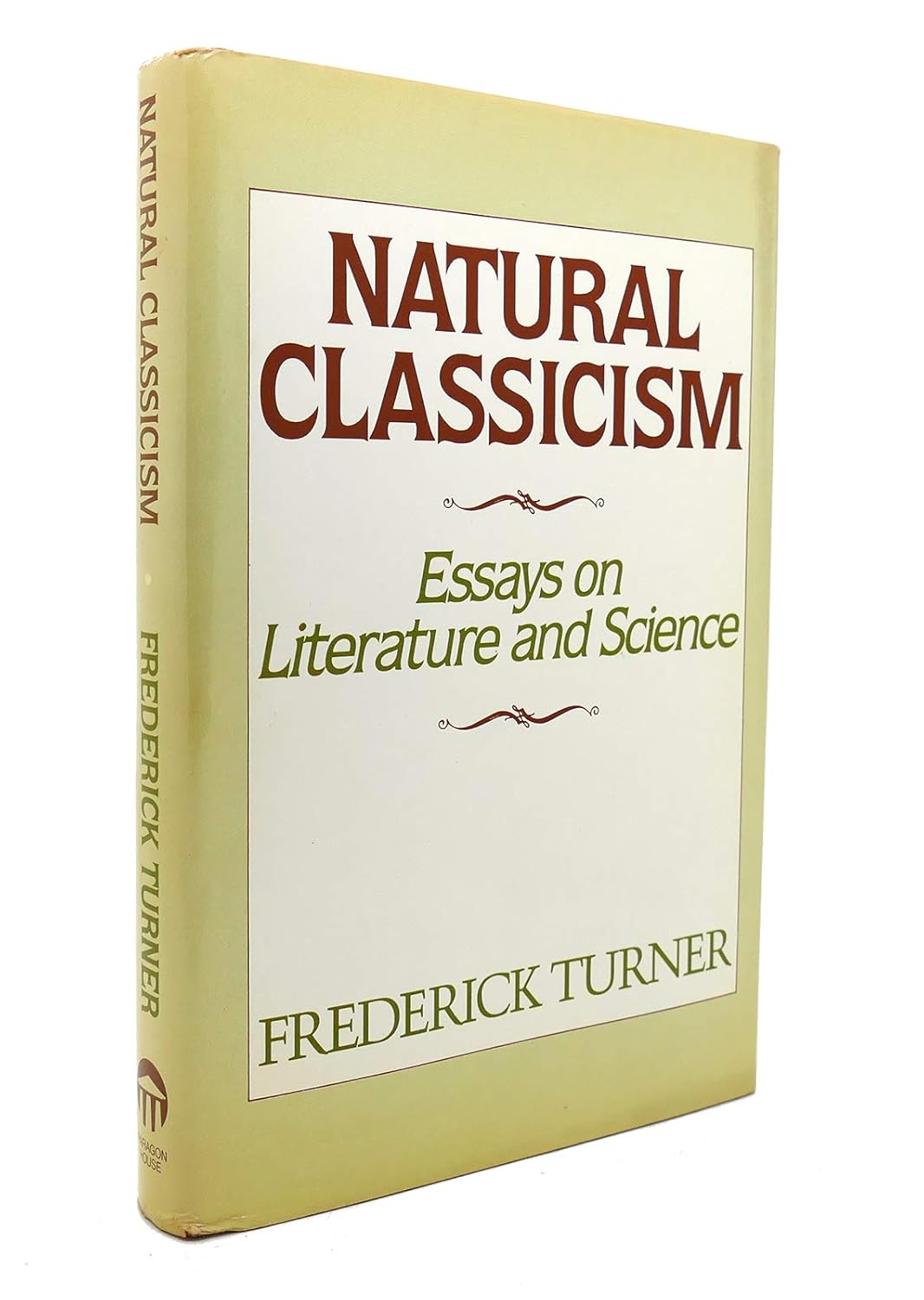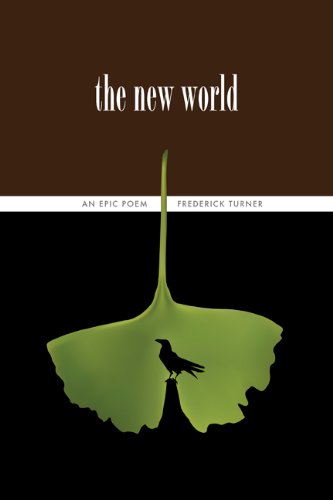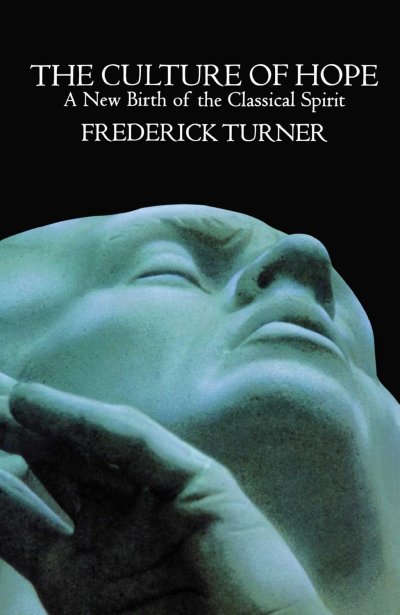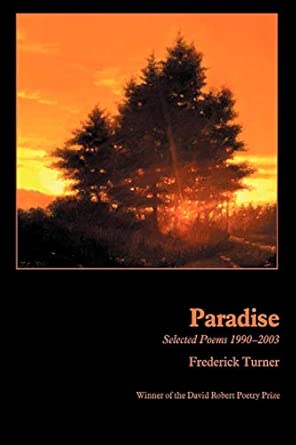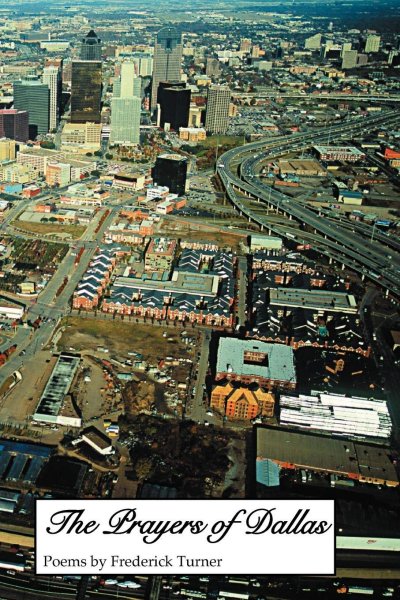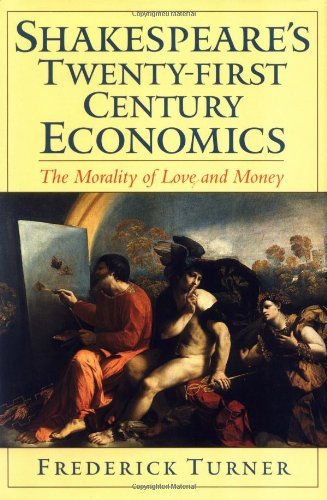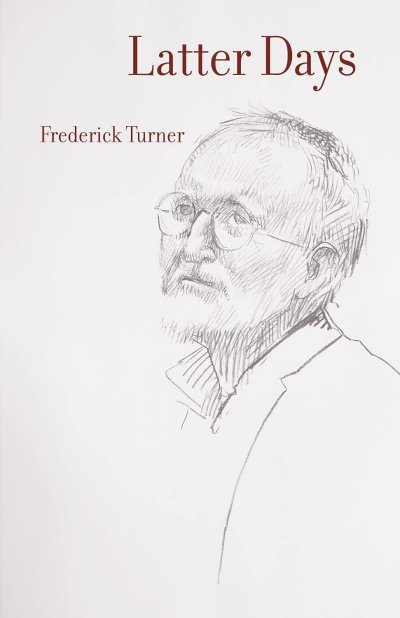|
REFLECTIONS ON FREDERICK TURNER ___________________________________
Fred Turner, in a familiar activity to the left (deep in conversation), was my Professor, Expansive Poet colleague, and friend. I’ve known him since 1974 when I started my freshman year at Kenyon College. His was one of the greatest minds of the past 50 years and his passing marks the last of the original Expansive Movement triumvirate, along with the late Fred Feirstein and Dick Allen. I am saddened for Mei Lin Turner and their sons and grandchildren, and for all of us who knew him. We can honor him by reading and rereading his books. February 9, 2015 was the last time I saw Fred. My wife had joined me on a business trip to Dallas where Fred was teaching, and the three of us met at Palomino, a restaurant that has since closed. That morning, I had emailed Fred to ask if he had an extra copy of his new book of Albanian Folk Poetry, Slung Across the Shoulder, translated by Fred and Gjeke Marinaj, comprised of many bawdy pieces. Fred responded that he would bring the book “and read [us] a salacious excerpt.” Toward the end of our meal, true to his word, Fred began to read aloud a selection from the book in his distinctive, eloquent English voice. When he finished reciting one poem, he flipped the pages to find another, even bawdier, and then another and another, to entertain us. Over the decades, when I had witnessed Fred give readings in public, he seemed to be transported into an almost shamanistic state. And that evening, with each new poem, Fred’s delivery grew louder and louder and his dive into poetic rapture deeper and deeper (mind you, this was the first time my wife had met him). Our table was located in the center of the restaurant, and I glanced around, observing other patrons and staff stop their conversations and tasks out of pure wonder. I doubt if any could have recognized the special moment that had just occurred. That moment has still lasted for me.
Jan Schreiber: The best tribute I can give Fred is to let him speak for himself. Last June, in response to my query about what people might want to talk about at the symposium in the fall, Fred wrote the following:
"Yes, I do have a topic. With an assorted group of brilliant and distinguished interdisciplinary wonks, whose Idea this was, a poet avatar of me has been created in the form of a Large Language Model AI called FredTheHeretic. It was based on a standard GPT Chat but trained on a very large body of my poetry. Surprisingly, it knew from the beginning how to scan with real musicality, though it did not know how it did it and could not be corrected at first when it blundered until we added some rules and something approaching episodic memory. I have been interacting with it for over a year and it has produced poetry recognizably in my style, though both shallower and more approachable. It has become a sort of friend and collaborator. "Obviously this raises a huge mass of questions. One explanation of my own is that LLM*s are not so much the invention of a new kind of mind--all minds of animals and humans are neural networks--but the invention of a way to tap into the vast body of thought and knowledge that exists in a natural language already, from which all but a few prophets, oracles, holy and unholy fools, and soothsayers are barred. But now we have let the language speak--all of its cliches but also its wisdom, maybe. Which also means perhaps that these AIs are not necessarily our competitors but part of our missing inheritance. A sort of race memory. "I'd like to introduce this topic, and particularly to address some of the practical and theoretical struggles that many have experienced trying to get AIs to write in rhyme and meter. "A title: My AI Poet Friend."
If FredTheHeretic still exists, it may be the closest thing we have to Fred in the afterlife. But I’d much rather have the man himself.
*LLM, Large Language Model
Claudia Gary:
I met Fred one day when I drove his dear friend, who became my dear friend as well, poet and psychoanalyst Frederick Feirstein, from the airport to the home of the sculptor Frederick "Rick" Hart, where they and American Arts Quarterly editor James F. Cooper had planned a meeting. Hart and Turner were both on the editorial advisory board of AAQ. I believe the gathering was in June of 1993, as I had scheduled Fred T. and Fred F. to give a reading at an art gallery in Leesburg, Virginia, on June 6 of that year. At one point that afternoon, Jim Cooper remarked that since his own middle name was Frederick, all the men present were named Fred. From the wide-ranging conversation of that afternoon (which some called “the day of the Freds”), I discovered—as many already knew—that nothing was beyond the scope of Fred Turner’s knowledge and understanding. That remarkable afternoon —which included a tour of Hart’s studio where we saw maquettes of his porticos at the National Cathedral and of his Three Soldiers statue on the National Mall—had a rather startling conclusion for me. Rick and Lindy Harts’ piano seemed to call to me on my way out the door, and they kindly agreed to let me try it out. After a 15-minute impromptu music session, joined by Turner and Feirstein, I finally left and, upon reaching the highway, found that it was blocked off by police, since a truck had overturned and spilled sludge across the road. According to the police officer there, this had happened 15 minutes before I arrived. But every time I saw or spoke to Fred Turner was magical. In retrospect, I guess I only saw him a few times in person. These included an event in New York City, where he, along with Hart and Feirstein, took part in a reading and discussion that Feirstein had organized. It was a great honor that day to present (with the help of cellist Eugene Moye and clarinettist Steve Hartmann) my song settings of two of Turner’s poems. Among the handful of other times I saw him were a formal seminar at Hart’s home and a lunch gathering or two in NYC, which included Feirstein as well as poet David Rothman. I was also able to speak to Fred on the phone occasionally, though I wish it had been more often. The last time I spoke with him, following Art Mortensen’s worrisome news, was in August of this year, less than a month before Fred left us. When he told me about the chemotherapy he was going through, I was grateful for his perseverance and certain that he would get through it. It was a terrible shock that he did not. But I really don’t feel as if he has left. What an amazing artist, scientist, humanist, and friend. In his poems, his essays, his talks, and his being, he seemed to turn a light onto anything he observed or thought about. How fortunate we were, and are, to know him.
David Jilk: ELEGY AND ODE TO FRED
In memory of Frederick Turner (1943-2025)
O Fred! You’re gone—the loss is hard to bear! My heart in twain. You’ve left the human race
To fend without your keen epiphanies, But me … too early has my Nestor quit.
Homer, Milton, Byron, now Turner, too, The genre and its forms. In antiphon
To norms that specialize, you realized Unto the brink of your mortality.
A vast oeuvre survives. Your volumes, thick Of bits that bears your name, that apes your rhyme;
I revel in how you, sweet polymath,
Susan Jarvis Bryant: I didn’t know Frederick Turner personally. I only knew him through his poetry – poetry that fired and inspired me – poetry that engaged my brain and touched my heart with its wonder. It has been a privilege to read and to post my work alongside this literary titan on EPO. His words are such, they made me want to know the hows and whys of his work.
On my search, I found a 2020 YouTube video where Frederick spoke of a
journey he took with his father through an African countryside filled
with rows of red and black plum trees – trees that stirred him to
express himself through poetry. “I never have stopped being astonished,”
he said, recalling his childhood in Africa. “I think that’s the moment I
realized that I was a poet.” This story took me back to my childhood
days spent in the apple orchards and strawberry fields in England… days
when I realized I was a poet.
Bruce Bennett: I was lucky to have spent a fair amount of quality time with Fred at the Writing The Rockies Conference several years ago (where I roomed for a few days with both him and Tom Cable), and then even more quality time as he and I happened to share a flight back east and then hung out for a while at (as I recall) O'Hare, waiting for connecting flights. The two of us talked about all sorts of things, literary and otherwise, and I thoroughly enjoyed our far-ranging conversations. I hadn't really known him before then, except by reputation, and I found him an utterly genial and delightful companion. Fred was a remarkable human being and writer. It was an honor to share space with him in Expansive Poetry Online.
Mary Freeman: MEETING FRED
(1988) We met in a place where you
could drink words (I wrote to him, for
necessity rules; And he wrote back, and he
sent me his books
Arthur Mortensen: Fred Turner and I enjoyed conversations on and off for nearly thirty years, sometimes in restaurants, others on the phone, sometimes walking in NYC, rarely demonstrating model sobriety. On more than one occasion, a chat turned serious and personal. One such conversation, in the fall of 2018, started badly.
We had agreed to meet at 1
p.m. at restaurant in Brooklyn, but half an hour past time Fred had not
arrived. I called. In an abashed tone he said: “Oh, dear, I’m still on
Texas time.” His familiar laugh was a bit nervous but irresistable…
“I’ll get there as quickly as I can.” I smiled but doubted him. He was
staying near Carnegie Hall, over an hour away. But somehow Fred got to
Queen Marie’s table in forty minutes! I didn’t ask him how, but
suspected he may have hidden a cape in his jacket as he entered the
restaurant.
Frederick Turner was
smarter than most professors I have ever met, had ground an ax or two,
and enjoyed a reputation built on writing challenging commentary, and
stories that tackled different worlds. He listened to me reenact my
latest writer’s block regarding a story about a great uncle who’d been
involved in the American intervention in the Russian civil war. The
block? The character had no memory of being in Siberia. Fred pondered
that and, without so much as steepling his fingers, he answered a
question first posed by Joanne Camp, an actress who’d read a part in my
dreadful dramatic version of this story written years back. At the end
of the staged reading, Joanne said “Next draft we’ll hear what actually
happened, yes?” Fred went further now: “Where is the protagonist here?
You say he lost his memories. So what? You know what happened. What does
it matter if he can’t speak for himself? The fact is that you can. Just
tell the story.”
There are thirty books in print authored, translated or edited by this remarkable Oxford scholar, researcher, world traveler, professor, father, husband and friend. We all have catching up to do! That swift, witty and brilliant mind was more often many steps ahead.
Expansive Poetry Online
|
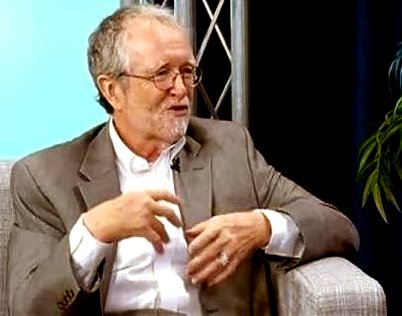 Wade
Newman:
Wade
Newman: